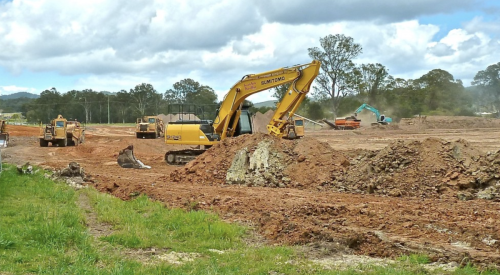| Stan Ehrlich
|
Builders holding cash to invest in their next project face a quandary. If, for example, you have cash to be used to buy your next tract of land, you're probably chagrined with the returns on its investment. In fact, some of you probably look at your monthly bank statements wondering whether the bank is paying you any interest at all. (Hint: Depending on the type of account you have, you actually might not be getting interest on that account. Finding that out would really add insult to injury!)
I will go out on a limb and assume that the hunt for measurable short-term yields has caused more than a few people (let's not assume only builders do foolish things) to take risks they probably shouldn't take. Or, they (you) might be taking risks they're not even aware they're taking.
If you have business cash waiting to be reinvested into your business, take heed: There currently are no (legal) high-interest, short-term investments free of risk. If you think you have one, congratulations, and I hope you get all of your money back when you need it. But if you're wondering what options are available, please note the following:
Short-term dollars (funds that will be needed in 12 months or less) should be kept in investments/accounts in which your risk is zero or minimal. This limits you to savings and money-market accounts; short-term certificates of deposit; short-term bond mutual funds (in which there is some principal risk if interest rates rise abruptly); and short-term commercial paper. (Depending on the size of your company as well as the size of your cash stockpile, a few more exotic avenues are available for short-term cash investments.)
Investments such as stocks, intermediate- or long-term bonds, stock or bond mutual funds (other than noted above), annuities and hedge funds are all completely inappropriate investments for short-term cash.
Funds that won't be needed for more than a year but will be needed in less than five years can be invested in vehicles carrying slightly more risk because at least you'll have a little time to get your money back if things go awry. But even assets you'll need in five years or less should be limited: individual corporate bonds with short maturities; short-term bond mutual funds, certificates of deposit; and commercial paper. (In this instance, money-market accounts should be used only if current rates exceed rates available from any of the above.)
When it comes to your business cash (as well as your personal cash), funds that might be needed in five years or less should never be put at extreme risk.
What's my idea of extreme risk? The stock market. Imagine this is late 1999, and you are going to close on a big parcel of land in 24 to 36 months. Imagine further that you invested all of your down-payment cash in a good, safe technology fund. Now, jump to 2002, and tell me the value of your tech fund. And tell me if you're buying that same parcel of land with 80% less cash than you had in 1999.
If you're running a business, you're taking a bet every day on its survival. Don't stick your neck or your dollars out further than need be.












